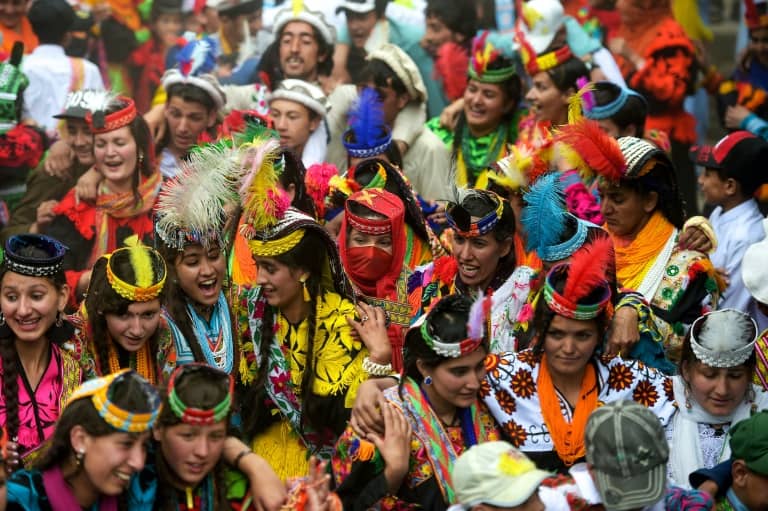Every year the Kalash, a group of less than 4,000 people confined to a handful of villages in the north, greet the new season with animal sacrifices, baptisms, and weddings at a festival known as “Joshi“.
As celebrations kick off, tourists with phones jostle to get close to and photograph the Kalash women, whose vibrant clothing and headdresses contrast starkly with the more modest attire worn by many in the conservative Islamic republic.
“Some people are using their cameras as if they were in a zoo,” said local tourist guide Iqbal Shah.

Known for their pale skin and light-coloured eyes, the Kalash have long claimed ancestral links to Alexander the Great’s army, who conquered the region in the fourth century BC. They worship many gods, drinking alcohol is a tradition and marriages of choice is the norm, unlike in the rest of Pakistan where unions are often arranged.
However, the community is far from being modern. Members of the community often wed in their teens, with women poorly educated and expected to perform traditional roles in the home.
Nonetheless, stories about the Kalash are frequently fabricated, and this has been amplified in recent years by the influx of tourists and their smartphones and cameras.
One video viewed 1.3 million times on YouTube, claims the Kalash “openly have sex” with partners of their choosing “in the presence of their husbands”.
In the main Kalash village of Bumburate a hotel manager estimates that about 70 percent of Pakistani tourists visiting his establishment are young men, who often inquire about where to “find girls”. Hence, in Bumburate, posters now call on visitors to seek permission from villagers before photographing and signs warn tourists not to harass women.
“If they don’t respect us, we don’t need tourists,” says Yasir Kalash, the vice president of the local hotel association.
Regulating tourism is a cumbersome but vital task for the Kalash, with money from the industry increasingly providing an important source of revenue for the community which is dwindling and burying under increasing costs.







